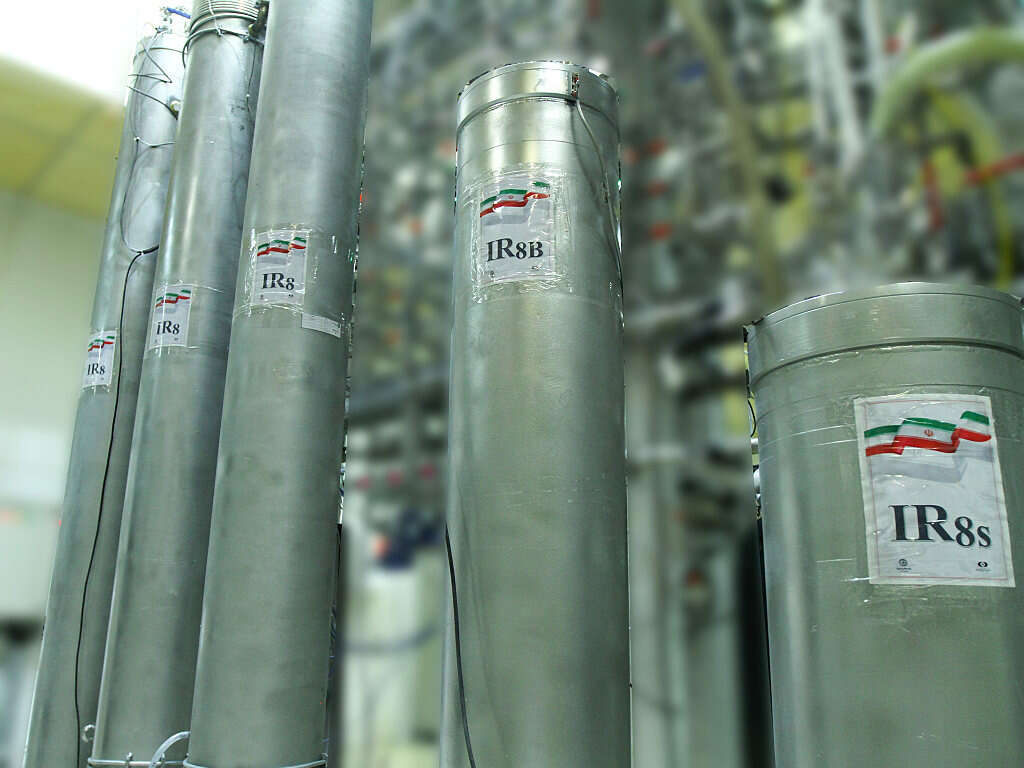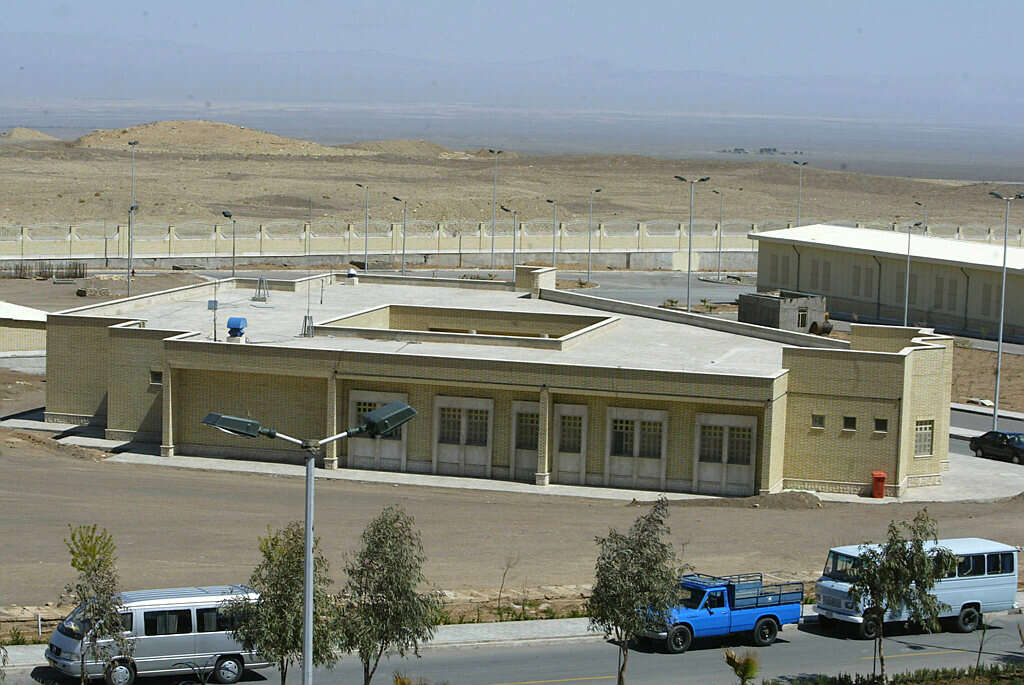Iran has now two cascades of advanced centrifuges with almost four times the enrichment capacity of earlier ones running at its underground Natanz nuclear site, the Islamic republic's envoy to the International Atomic Energy Agency said on Tuesday.
Follow Israel Hayom on Facebook and Twitter
"Thanks to our diligent nuclear scientists, two cascades of 348 IR2m centrifuges with almost four times the capacity of IR1 are now running successfully in Natanz," Kazem Gharibabadi said on Twitter.
"Installation of two cascades of IR6 centrifuges has also been started in Fordo. There's more to come soon."
IAEA monitors said that Tehran has recently accelerated its breaches of the deal, raising pressure on US President Joe Biden as both sides say they are willing to come back into compliance with the badly eroded agreement if the other side moves first.
Iran began its breaches in 2019 in response to Washington's withdrawal from the Joint Comprehensive Plan of Action in 2018, under then-President Donald Trump and the re-imposing of US economic sanctions against Tehran that were lifted under the deal.

The 2015 accord allows Iran to refine uranium at Natanz – its main enrichment site – using only first-generation IR-1 centrifuges. Last year Iran began enriching there with a cascade, or cluster, of much more efficient IR-2m centrifuges and said in December it would install three more.
"Iran has completed the installation of one of these three cascades, containing 174 IR-2m centrifuges, and, on Jan. 30 2021, Iran began feeding the cascade with UF6," the IAEA said Tuesday, referring to uranium hexafluoride feedstock.
The agency's report, seen by Israel Hayom. later confirmed that the Islamic republic had started enriching with the second cascade.
Tehran is also pressing ahead with the installation of more advanced centrifuges, the report indicated. Of the remaining two cascades of IR-2m machines, installation of one had begun while the other's installation was "nearing completion," it said.
The IAEA later said that Iran had informed it in a letter dated Feb. 1 that two cascades of IR-6 centrifuges would be installed at Fordo to be used with the 1,044 IR-1 machines already enriching in six cascades there.
Reports of Iran's latest breach followed remarks by US Secretary of State Antony Blinken, who said Monday that the so-called "breakout time" – the period in which Iran might ramp up enrichment of uranium to bomb-fuel purity - "has gone from beyond a year [under the deal] to about three or four months."
Israel's Energy Minister Yuval Steinitz, however, disagreed with that assessment, which Blinken was based on public information, saying that it would take Iran around six months to produce enough fissile material for a single nuclear weapon – a timeline almost twice as long as that anticipated by the US's top diplomat.
In a radio interview, Steinitz argued that the Trump administration "seriously damaged Iran's nuclear project and entire force build-up.
"In terms of enrichment, they [the Iranians] are in a situation of breaking out in around six months if they do everything required," he told Israel Radio. "As for a nuclear weapon, the range is around one or two years."
Also on Tuesday, Iran's Foreign Minister Javad Zarif suggested the European Union coordinate Washington's return to the nuclear deal, on Monday in an interview with CNN International.
"You know clearly there can be a mechanism to basically either synchronize it, or coordinate what can be done," he told CNN's Christiane Amanpour.
EU foreign policy chief Josep Borrell can "sort of choreograph the actions that are needed to be taken by the United States and the actions that are needed to be taken by Iran," Zarif said.

Biden has supported renegotiating a return to the deal but stipulated that Tehran must resume full compliance.
"The United States needs to come back into compliance and Iran will be ready immediately to respond," Zarif said. "The timing is not the issue."
According to Zarif, Iran's return to these commitments will take "less than a day."
"Some may take a few days or weeks, but it won't take any longer than it would take the United States to implement executive orders that are necessary to put back Iran's oil, banking, transportation and other areas that President Trump violated, back into operation," Zarif said.
The United States said Tuesday it was too early to accept an Iranian proposal for the EU to help revive a nuclear deal, reiterating calls on Tehran to come into full compliance.
"If Iran comes back into full compliance with its obligations under the JCPOA, the United States would do the same," the State Department's new spokesman, Ned Price, told reporters.
The administration will be "consulting with our allies, consulting with our partners, consulting with Congress before we're reaching the point where we're going to engage directly with the Iranians and [be] willing to entertain any sort of proposal," Price said.
Subscribe to Israel Hayom's daily newsletter and never miss our top stories!




